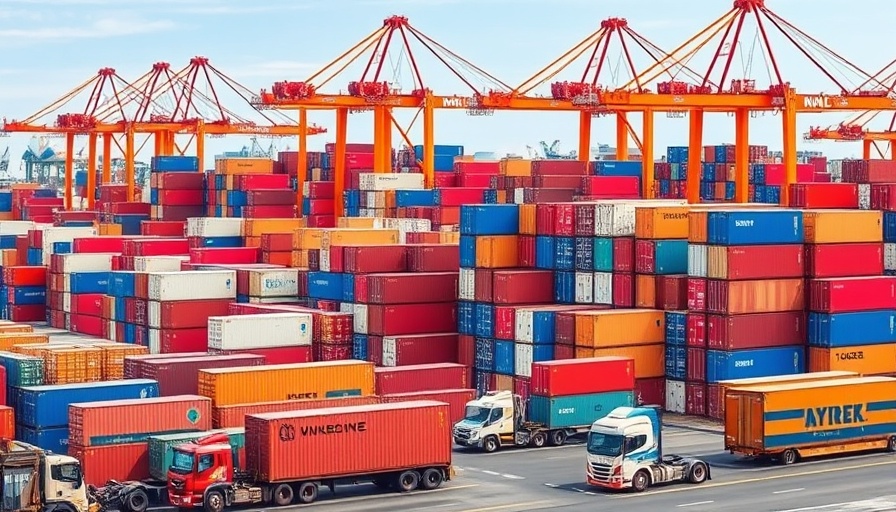
The Urgency Behind Trump's Trade Negotiations
As the July 8 deadline approaches, the White House is urging countries globally to present their best offers in trade negotiations. This strategy reflects the Trump administration's desire to expedite the ongoing discussions that began on April 9 following a 90-day pause on proposed tariffs that could impact various international markets. Preliminary strategies unveiled in a draft communication from the United States Trade Representative indicate a clear goal: to streamline trade agreements before the self-imposed deadline, amidst market volatility and economic concern.
Trade Negotiations: Key Areas of Focus
Countries are expected to submit proposals addressing several critical areas. These include tariff and quota adjustments related to U.S. industrial and agricultural goods and resolutions for non-tariff barriers that have previously hampered trade. The move demonstrates an effort to foster smoother trading processes between the U.S. and its partners, with commitments on digital trade and economic security being of significant concern.
Global Reactions to the Tariff Framework
The anticipation surrounding these negotiations is palpable among trading nations. Countries like Canada, Mexico, and members of the European Union are watching closely, as they seek to align their interests with U.S. expectations to avoid escalated tariffs that would inevitably raise prices for consumers. The urgency conveyed by U.S. officials has sparked mixed reactions; while some countries are eager to negotiate, others express skepticism regarding the Trump administration's commitment to fair trade practices.
The Broader Economic Impacts of Tariff Policies
The conversations surrounding these tariffs are indicative of a broader narrative within global trade dynamics. Higher tariffs not only affect direct trade but can also lead to increased prices for consumers and disrupted supply chains. The tension between economic policies and diplomatic relationships creates a challenging environment where countries must navigate their own interests while trying to accommodate U.S. demands.
Future Predictions for Trade Relations
Looking ahead, the outcomes of these negotiations may redefine U.S. trade relationships. Analysts project that countries willing to make substantial concessions could enjoy preferential economic terms with the U.S., presenting new opportunities for market entry. However, failure to reach satisfactory agreements before the July 8 deadline could signify a shift toward more aggressive tariff implementations, triggering a potential trade war that could have far-reaching implications.
Conclusion: The Importance of Active Engagement
As countries prepare to submit their best trade offers in light of the looming deadline, the importance of proactive engagement cannot be understated. By participating in these negotiations, nations not only position themselves favorably within the U.S. market but also contribute to a larger discourse on trade equity and economic stability worldwide. The ultimate aim for many will likely be to craft agreements that sustain positive relations while ensuring competitiveness on the global stage.
 Add Row
Add Row  Add
Add 




 Add Row
Add Row  Add
Add 

Write A Comment